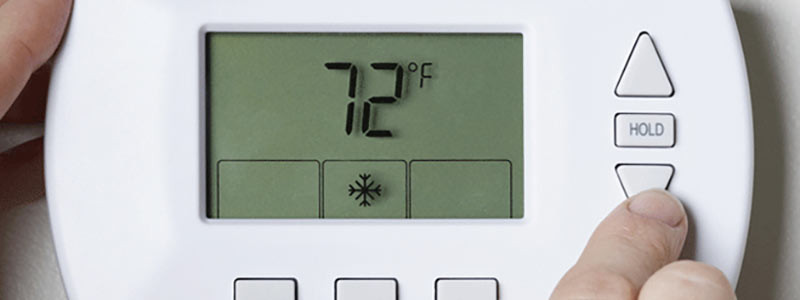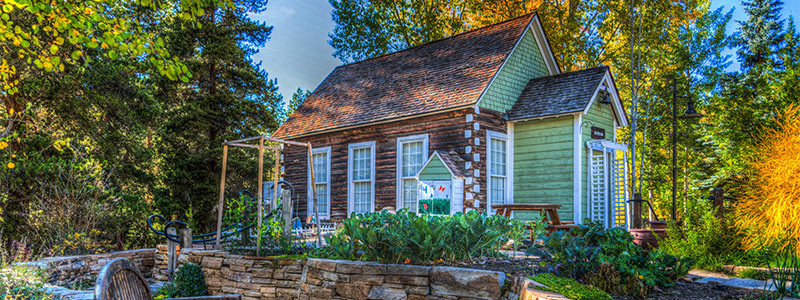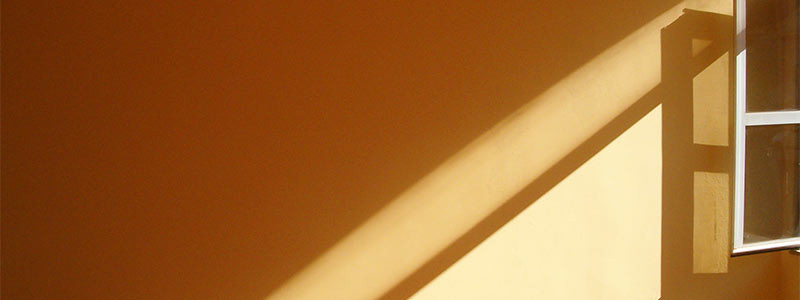Are you looking for ways to reduce your energy consumption and save money this summer? At savewhere.net, we provide actionable strategies to help you lower your utility bills while staying cool and comfortable. Discover energy-efficient solutions, manage your peak energy usage, and explore various discounts to maximize your savings.
1. Why Is My Energy Bill So High In The Summer?
Your energy bill is high in the summer due to increased air conditioning use, longer daylight hours, and higher electricity demand during peak times. As the temperature rises, your air conditioner works harder to keep your home cool, leading to a significant increase in energy consumption. This higher usage, combined with peak-time electricity rates, can substantially inflate your monthly bill.
To further elaborate, here are several contributing factors:
- Increased Air Conditioning Usage: Air conditioning systems consume a considerable amount of energy. According to the U.S. Energy Information Administration (EIA), cooling accounts for about 13% of total energy consumption in U.S. homes. The hotter it gets, the more your AC runs, and the more energy it uses.
- Longer Daylight Hours: While more sunlight is enjoyable, it also means more heat entering your home, which prompts you to turn on the AC earlier in the day and keep it running longer.
- Peak Demand Surcharges: Utility companies often charge higher rates during peak demand hours, typically in the late afternoon and early evening when most people are home and using electricity. Using appliances during these times can significantly increase your bill.
- Inefficient Appliances: Older or poorly maintained appliances, including AC units, refrigerators, and freezers, consume more energy. Upgrading to energy-efficient models can result in substantial savings over time.
- Poor Insulation: Inadequate insulation in walls, attics, and windows allows heat to penetrate your home more easily, forcing your AC to work harder to maintain a comfortable temperature.
- “Phantom” Energy Use: Many electronic devices continue to draw power even when turned off. These “phantom” loads from TVs, chargers, and other devices can add up over time and contribute to higher energy bills.
- Behavioral Factors: Habits such as setting the thermostat too low, leaving lights on in empty rooms, and not utilizing energy-saving features on appliances can also increase energy consumption.
By understanding these factors, you can take targeted steps to reduce your energy consumption and lower your summer energy bills. For example, using smart thermostats, improving insulation, and scheduling appliance use during off-peak hours can all contribute to significant savings.
2. How To Reduce Your Energy Consumption In Summer?
You can reduce your energy consumption in summer by optimizing your air conditioning, using fans, managing sunlight, and adopting energy-efficient habits. These strategies will help you save money and lower your carbon footprint.
- Optimize Your Air Conditioning: Regular maintenance, such as cleaning or replacing filters, can improve the efficiency of your AC unit. According to the U.S. Department of Energy, replacing a dirty filter can lower energy consumption by 5-15%. Setting your thermostat to a higher temperature when you’re away from home can also reduce energy waste.
- Use Fans Strategically: Fans use significantly less energy than air conditioners. Ceiling fans circulate air, making a room feel cooler, while portable fans can provide targeted cooling. Using fans in conjunction with AC allows you to raise your thermostat setting and still remain comfortable.
- Manage Sunlight and Insulation: Close curtains and blinds during the hottest part of the day to block sunlight and prevent heat from entering your home. Insulating your home properly, including walls, attics, and windows, can also keep your home cooler in the summer.
- Adopt Energy-Efficient Habits: Unplug electronic devices when not in use, as many continue to draw power even when turned off. Use energy-efficient appliances and lighting, such as LED bulbs. Washing clothes in cold water and air-drying them can also save energy.
- Utilize Smart Home Devices: Smart thermostats, smart plugs, and other smart home devices can help you monitor and control your energy usage. These devices allow you to automate temperature settings, turn off devices remotely, and track energy consumption in real-time.
- Improve Ventilation: Ensure proper ventilation in your home to allow for air circulation and reduce humidity. This can help your AC unit run more efficiently and keep your home cooler.
- Cook Smartly: Use smaller appliances like microwaves or toaster ovens instead of the oven to avoid heating up your kitchen. Cooking outdoors on a grill can also help keep your home cooler.
- Reduce Water Heating Costs: Lower the temperature on your water heater and take shorter, cooler showers. Washing clothes in cold water can also save energy.
By implementing these strategies, you can significantly reduce your energy consumption in the summer and lower your energy bills. Each action contributes to a more sustainable and cost-effective lifestyle.
 Adjust your thermostat
Adjust your thermostat
3. What Are The Best Ways To Optimize Your Air Conditioning System?
The best ways to optimize your air conditioning system include regular maintenance, smart thermostat use, and ensuring proper insulation to improve efficiency and reduce energy costs.
Here are some specific actions you can take:
- Regular Maintenance: Regularly cleaning or replacing air filters is essential for maintaining optimal performance. Dirty filters restrict airflow, causing your AC unit to work harder and consume more energy.
- Smart Thermostat Use: Smart thermostats learn your habits and adjust temperature settings automatically. You can also control them remotely, ensuring your AC isn’t running when you’re away.
- Proper Insulation: Ensuring your home is well-insulated prevents heat from entering, reducing the workload on your AC unit.
- Seal Air Leaks: Sealing cracks and gaps around windows and doors prevents cool air from escaping. According to the EPA, sealing air leaks can save homeowners 15% on heating and cooling costs.
- Professional Inspection: Schedule annual inspections by a qualified HVAC technician to identify and address any issues. Regular inspections can help prevent costly repairs and ensure your AC unit is running efficiently.
- Upgrade to Energy-Efficient Models: If your AC unit is old or inefficient, consider upgrading to a newer, ENERGY STAR certified model. These units consume significantly less energy and can result in substantial savings.
- Optimize Placement: Ensure your AC unit is properly positioned and not blocked by furniture or other obstructions. Proper airflow is essential for efficient cooling.
- Use Window Treatments: Utilize curtains, blinds, or shades to block sunlight and prevent heat from entering your home.
- Consider a Programmable Thermostat: If you don’t have a smart thermostat, a programmable thermostat can still help you save energy by allowing you to set temperature schedules based on your daily routine.
- Maintain Outdoor Unit: Keep the area around your outdoor AC unit clean and free of debris. Clear away any vegetation or obstructions that could restrict airflow.
By implementing these strategies, you can optimize your air conditioning system for maximum efficiency and reduce your energy consumption during the summer months. Regular maintenance, smart technology, and proper insulation are key components of an energy-efficient cooling strategy.
4. How Can Fans Help Lower My Energy Bill During Summer?
Fans help lower your energy bill during summer by circulating air, making rooms feel cooler, and allowing you to raise the thermostat setting on your air conditioner.
Here’s how fans contribute to energy savings:
- Air Circulation: Fans circulate air, which helps to distribute cool air more evenly throughout a room. This makes the room feel cooler, even if the temperature is slightly higher.
- Evaporative Cooling: Fans create a breeze that promotes evaporative cooling on your skin. As sweat evaporates, it cools your body, making you feel more comfortable.
- Lower AC Usage: By making rooms feel cooler, fans allow you to raise the thermostat setting on your air conditioner.
- Energy Efficiency: Fans consume significantly less energy than air conditioners. Ceiling fans typically use about as much energy as a light bulb.
- Targeted Cooling: Portable fans can provide targeted cooling in specific areas of a room. This allows you to cool only the areas where you need it, rather than cooling the entire room.
- Supplemental Cooling: Fans can supplement air conditioning by helping to distribute cool air and prevent hot spots.
- Nighttime Cooling: In climates where nighttime temperatures drop, fans can be used to circulate cool outdoor air throughout your home, reducing the need for air conditioning.
- Cost-Effectiveness: Fans are relatively inexpensive to purchase and operate. They provide a cost-effective way to stay cool and comfortable during the summer months.
- Versatility: Fans can be used in a variety of settings, including bedrooms, living rooms, and offices.
- Environmental Benefits: By reducing your reliance on air conditioning, fans help lower your carbon footprint and reduce your impact on the environment.
By strategically using fans, you can lower your energy bill and stay comfortable during the summer. Combining fans with air conditioning can provide the best of both worlds: efficient cooling and energy savings.
 Plants can provide much needed shade
Plants can provide much needed shade
5. What Role Does Landscaping Play In Reducing Energy Bills?
Landscaping plays a significant role in reducing energy bills by providing shade, reducing heat absorption, and improving natural ventilation around your home.
Here are several ways landscaping can help:
- Shade Provision: Trees and shrubs planted strategically around your home can provide shade, reducing the amount of sunlight that reaches your walls and windows. This can significantly lower the temperature inside your home.
- Reduced Heat Absorption: Dark-colored surfaces absorb more heat than light-colored surfaces. Planting vegetation around your home can help reduce the amount of heat absorbed by your walls and roof.
- Improved Natural Ventilation: Trees and shrubs can help channel wind and improve natural ventilation around your home. This can help keep your home cooler and reduce the need for air conditioning.
- Evapotranspiration: Plants release water vapor into the air through a process called evapotranspiration, which can help cool the surrounding environment.
- Windbreaks: Trees and shrubs can act as windbreaks, reducing the amount of wind that blows against your home. This can help prevent heat loss in the winter and keep your home cooler in the summer.
- Green Roofs: Planting vegetation on your roof can help insulate your home, reducing the amount of heat that enters in the summer and the amount of heat that escapes in the winter.
- Living Walls: Vertical gardens or living walls can provide insulation and shade for your walls, reducing the amount of heat that enters your home.
- Ground Cover: Planting ground cover, such as grass or mulch, can help reduce the amount of heat reflected off the ground and onto your home.
- Aesthetic Benefits: Landscaping can enhance the aesthetic appeal of your home, increasing its value and creating a more pleasant living environment.
- Environmental Benefits: Landscaping can provide habitat for wildlife, reduce soil erosion, and improve air quality.
By strategically incorporating landscaping into your home’s design, you can reduce your energy bills and create a more sustainable and comfortable living environment. Shade, reduced heat absorption, and improved ventilation are key benefits of effective landscaping.
6. How To Save Money On Water Heating Costs During Summer?
To save money on water heating costs during summer, lower your water heater temperature, take shorter showers, and optimize laundry practices.
Here are several strategies:
- Lower Water Heater Temperature: Reduce the temperature setting on your water heater to 120°F (49°C). This is typically sufficient for most household needs and can save a significant amount of energy.
- Take Shorter Showers: Reduce the length of your showers to conserve hot water. Even a minute or two less can make a difference over time.
- Optimize Laundry Practices: Wash clothes in cold water whenever possible. Hot water consumes significantly more energy.
- Fix Leaks: Repair any leaky faucets or showerheads promptly. Even small leaks can waste a significant amount of water and energy over time.
- Install Low-Flow Showerheads: Low-flow showerheads use less water without sacrificing water pressure.
- Insulate Water Heater and Pipes: Insulating your water heater and hot water pipes can reduce heat loss and improve efficiency.
- Schedule Water Heater Use: Use a timer or smart device to schedule your water heater to operate only when needed.
- Upgrade to a Tankless Water Heater: Consider upgrading to a tankless water heater, which heats water on demand rather than storing it in a tank.
- Avoid Peak Usage Times: Avoid using hot water during peak demand hours, when energy rates are typically higher.
- Consider Solar Water Heating: Solar water heating systems use sunlight to heat water, reducing your reliance on electricity or gas.
By implementing these strategies, you can save money on water heating costs during the summer months. Lowering the water heater temperature, taking shorter showers, and optimizing laundry practices are all effective ways to reduce energy consumption.
7. How Can I Use Electricity During Off-Peak Hours To Save?
To save money, use electricity during off-peak hours by scheduling energy-intensive tasks for times when demand and rates are lower, typically in the early morning or late at night.
- Understand Peak and Off-Peak Hours: Contact your utility company to determine the specific peak and off-peak hours in your area.
- Schedule Laundry: Run your washing machine and dryer during off-peak hours.
- Run Dishwasher: Operate your dishwasher during off-peak hours.
- Charge Electronic Devices: Charge your smartphones, tablets, and laptops during off-peak hours.
- Use Smart Home Devices: Utilize smart home devices to automate energy usage during off-peak hours.
- Program Thermostat: Set your thermostat to reduce cooling during peak hours and increase it during off-peak hours.
- Cook Meals Strategically: Prepare meals during off-peak hours to avoid using energy-intensive appliances during peak times.
- Utilize Timers: Use timers to schedule energy usage for off-peak hours.
- Monitor Energy Usage: Track your energy consumption to identify patterns and adjust your usage accordingly.
- Consider a Time-of-Use Plan: Explore whether your utility company offers a time-of-use plan, which provides discounted rates during off-peak hours.
By shifting your energy usage to off-peak hours, you can take advantage of lower rates and save money on your electricity bill. Scheduling laundry, running the dishwasher, and charging electronic devices are all effective ways to reduce your energy costs.
 Use electricity during off-peak hours
Use electricity during off-peak hours
8. Why Should I Close Doors And Vents In Unused Rooms?
Closing doors and vents in unused rooms improves your cooling system’s efficiency by focusing cooling efforts on occupied spaces, reducing energy waste and lowering your energy bill.
Here’s why this practice is beneficial:
- Focused Cooling: By closing doors and vents in unused rooms, you direct cool air to the areas where it is needed most.
- Reduced Energy Waste: Cooling unoccupied spaces wastes energy and increases your energy bill.
- Improved Efficiency: Your cooling system doesn’t have to work as hard to maintain a comfortable temperature in occupied areas.
- Lower Energy Bill: Reducing energy waste translates directly into lower energy bills.
- Consistent Temperature: Closing doors and vents helps maintain a more consistent temperature throughout your home.
- Zoning Systems: If you have a zoning system, closing doors and vents can enhance its effectiveness.
- Preventing Air Leaks: Closing doors and vents can help prevent air leaks and drafts.
- Reduced Strain on System: Less strain on your cooling system can extend its lifespan and reduce the need for repairs.
- Cost Savings: The cumulative effect of these benefits is significant cost savings over time.
- Environmental Impact: Reducing energy consumption also reduces your carbon footprint and promotes environmental sustainability.
By strategically closing doors and vents in unused rooms, you can improve the efficiency of your cooling system, reduce energy waste, and lower your energy bill. This simple practice can have a significant impact on your energy consumption.
9. How Do Windows Help Cool At Night And Keep Heat Out During The Day?
Windows help cool at night by allowing cool air to enter and displace warm air, and they keep heat out during the day when properly managed with blinds and curtains.
Here’s how windows can contribute to energy savings:
- Nighttime Cooling: Opening windows at night allows cool air to enter your home, displacing warm air that has accumulated during the day.
- Natural Ventilation: Windows provide natural ventilation, which helps to circulate air and keep your home cooler.
- Reduced AC Usage: By cooling your home naturally at night, you can reduce your reliance on air conditioning.
- Daytime Heat Block: Closing windows and drawing blinds or curtains during the day prevents sunlight from entering your home and heating it up.
- Insulation: Windows provide insulation, which helps to keep heat out in the summer and keep heat in during the winter.
- Window Films: Applying window films can reduce the amount of solar heat that enters your home.
- Window Treatments: Using curtains, blinds, or shades can help block sunlight and prevent heat from entering your home.
- Weather Stripping: Sealing gaps around windows with weather stripping can prevent air leaks and drafts.
- Double-Paned Windows: Installing double-paned windows can improve insulation and reduce heat transfer.
- Proper Maintenance: Keeping windows clean and well-maintained ensures they function efficiently.
By strategically using windows to cool your home at night and keep heat out during the day, you can reduce your energy consumption and lower your energy bill. Natural ventilation and proper window management are key components of an energy-efficient home.
 Use your windows to cool at night & keep out heat during the day
Use your windows to cool at night & keep out heat during the day
10. What Are Direct Load Control Programs And How Do They Help?
Direct Load Control (DLC) programs are initiatives where your utility company installs a device to remotely manage the energy usage of appliances like air conditioners, offering bill credits in exchange.
Here’s a breakdown of how these programs work and why they are beneficial:
- Remote Management: Utility companies install a control switch on your air conditioner or other appliances, allowing them to remotely manage energy usage during peak demand periods.
- Bill Credits: In exchange for allowing the utility company to manage your energy usage, you receive bill credits or other incentives.
- Peak Demand Reduction: DLC programs help reduce peak demand on the grid, preventing blackouts and brownouts.
- Grid Stability: By managing energy usage, DLC programs help maintain grid stability and reliability.
- Energy Efficiency: DLC programs promote energy efficiency by encouraging customers to reduce their energy consumption.
- Environmental Benefits: Reducing peak demand reduces the need for additional power plants, which can have environmental benefits.
- Voluntary Participation: Participation in DLC programs is voluntary, and you can typically opt out at any time.
- Minimal Disruption: The control switch typically only reduces energy usage by a small amount, and you may not even notice the difference.
- Cost Savings: DLC programs can result in significant cost savings over time, especially during peak demand periods.
- Wide Availability: DLC programs are widely available in many areas, and you can contact your utility company to learn more.
By participating in DLC programs, you can help reduce peak demand on the grid, promote energy efficiency, and save money on your energy bill. Remote management and bill credits make these programs an attractive option for many homeowners.
11. What Discounts Can I Ask About To Lower My Energy Bill?
To lower your energy bill, inquire about discounts such as low-income assistance, senior citizen discounts, energy efficiency rebates, and special programs for persons with disabilities.
Here are some specific discounts to ask about:
- Low-Income Assistance: Many utility companies offer discounts or assistance programs for low-income households.
- Senior Citizen Discounts: Senior citizens may be eligible for discounts on their energy bills.
- Energy Efficiency Rebates: Rebates are often available for purchasing energy-efficient appliances or making energy-efficient home improvements.
- Disability Programs: Special programs may be available for persons with disabilities to help them afford their energy bills.
- Military Discounts: Some utility companies offer discounts for military personnel and veterans.
- Time-of-Use Rates: Time-of-use rates provide discounted rates during off-peak hours.
- Demand Response Programs: Demand response programs offer incentives for reducing energy usage during peak demand periods.
- Weatherization Assistance: Weatherization assistance programs help low-income households improve the energy efficiency of their homes.
- Payment Assistance Programs: Payment assistance programs provide temporary financial assistance to help customers pay their energy bills.
- Budget Billing: Budget billing allows you to pay a fixed amount each month, making it easier to budget for your energy costs.
By inquiring about these discounts, you can potentially lower your energy bill and make your energy costs more affordable. Contact your utility company to learn more about the specific discounts and programs available in your area.
 Ask about discounts you can receive
Ask about discounts you can receive
12. How Can Savewhere.net Help Me Save On My Energy Bill This Summer?
Savewhere.net provides a variety of resources and tools to help you save on your energy bill this summer, including tips, discounts, and community support.
Here are specific ways Savewhere.net can assist you:
- Comprehensive Tips: Savewhere.net offers a wide range of tips and strategies for reducing energy consumption and lowering your energy bill.
- Discount Information: The website provides information on discounts, rebates, and special programs available in your area.
- Community Support: Savewhere.net features a community forum where you can connect with other users, share tips, and ask questions.
- Energy Calculators: The website offers energy calculators to help you estimate your energy consumption and identify areas where you can save money.
- Product Reviews: Savewhere.net provides reviews of energy-efficient appliances and products, helping you make informed purchasing decisions.
- Local Resources: The website connects you with local resources, such as energy auditors and contractors, who can help you improve the energy efficiency of your home.
- Personalized Recommendations: Savewhere.net offers personalized recommendations based on your specific needs and circumstances.
- News and Updates: The website keeps you informed about the latest news and updates in the energy industry.
- Educational Articles: Savewhere.net provides educational articles on a variety of energy-related topics.
- User-Friendly Interface: The website is easy to navigate and user-friendly, making it simple to find the information you need.
By utilizing the resources and tools available on Savewhere.net, you can take control of your energy consumption and save money on your energy bill this summer. From comprehensive tips to community support, Savewhere.net is your one-stop resource for energy savings.
Address: 100 Peachtree St NW, Atlanta, GA 30303, United States.
Phone: +1 (404) 656-2000.
Website: savewhere.net.
Ready to take control of your energy bill and start saving today? Visit savewhere.net now to discover more tips, find exclusive deals, and connect with a community of like-minded savers in the USA. Don’t wait – start your journey to financial freedom now and explore easy-to-implement strategies for everyday savings.
FAQ: Save On Energy Bill In Summer
1. What is the first step I should take to lower my energy bill in the summer?
The first step is to optimize your air conditioning system by cleaning or replacing filters and ensuring it is running efficiently.
2. How much can I save by adjusting my thermostat?
Each degree a thermostat is set above 75⁰F could save 10-15 percent in energy used.
3. Can using fans really make a difference in my energy bill?
Yes, fans use significantly less energy than air conditioners and can make a room feel cooler, allowing you to raise your thermostat.
4. What are some simple habits I can adopt to save energy daily?
Unplug devices when not in use, use energy-efficient appliances, and wash clothes in cold water.
5. How does landscaping help in reducing energy bills?
Trees and shrubs provide shade, reducing the amount of sunlight that heats up your home.
6. What is the ideal temperature setting for my water heater to save energy?
Set your water heater to 120°F (49°C) to save energy while still meeting household needs.
7. What are off-peak hours and how can using electricity then help?
Off-peak hours are times when energy demand is lower, and rates are cheaper; typically early morning or late at night.
8. Why should I bother closing doors and vents in rooms I’m not using?
Closing doors and vents directs cool air to occupied spaces, improving your cooling system’s efficiency.
9. How can my windows help in managing my home’s temperature?
Open windows at night to cool your home and keep them closed during the day to block heat.
10. What are direct load control programs, and are they worth it?
Direct load control programs allow your utility company to manage energy usage during peak times in exchange for bill credits.
